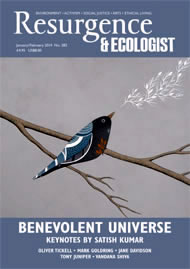I first met Felix Padel on a roadside outside the home of Tula Dei. Tula, an Adivasi in her early twenties, had single-handedly resisted the threats of officials from the British mining company Vedanta. Only hours before, company men had arrived to bulldoze her house, to make way for the boundary wall that was to encircle a proposed bauxite refinery.
That was in 2003. When I revisited Tula four years later, weeds had grown up around her mud-clad home, but she was still resisting the company, whose multi-million-pound alumina refinery had sprung up metres from her front door, spewing toxic sludge into the nearby river and pumping carbon monoxide into the air.
Ten years ago, Felix led an impassioned conversation with a Vedanta representative who met us on the roadside armed with all the reasons why if the new factory, nestled below Odisha’s sacred mountains, went ahead it would bring untold wealth to the area. The answer to that conversation lies in the book that Felix and filmmaker and activist Samarendra Das have worked on since.
Out of This Earth, a 600-page tome, is a compelling exposé of the aluminium industry in Eastern India. From ruthless company practices in the name of profit to the cultural genocide of India’s tribal people, it is one of the most comprehensive accounts of bauxite mining and its impact. From an anthropological perspective, the authors trace the rise of bauxite and its end product, aluminium – from everyday household items to weapons manufacturing – and they explore its interconnectedness with global business and politics right down to the destruction of local communities.
In particular, the book highlights the link between the aluminium industry and India’s big dam projects, which have already displaced millions of poor people across the continent. Seldom reported, but also here, is the link with our own UK government, which, through the Department of International Development, has ploughed funds into infrastructure such as roads in the name of development, only to pave the way for large-scale industrial projects.
What emerges is a bleak picture. Developed nations, who do not want the human or ecological fallout of mining in their back yard, outsource to poorer countries whose regulations are less strict and whose central and state government officials can be bribed into ushering in big business. Sites are chosen and refineries built with little regard to people or process. Indeed, in Odisha, “special economic zones” have already been carved out for further “development”, and it remains to be seen how companies will bribe, bend legislation, coerce and bully to extract India’s mineral wealth.
By sharp contrast, India’s tribal population has coexisted with Nature for thousands of years and its members know only too well the life-giving properties of bauxite – which acts as a sponge for the monsoon rains, naturally irrigating the hundreds of hectares of farmland below each bauxite-topped mountain. For their story, Out of This Earth is well worth a read purely because it highlights a perspective that is either completely ignored or overly romanticised.
The book also challenges the notion that “trickle down” naturally occurs – that a prospering economy will eventually lift India’s poor from their plight. The reality (to date) has been that the powerful elite largely service themselves, and company structure and political will unflinchingly reflect those interests.
In highlighting every facet of this story, Out of This Earth is fascinating, detailed and rich even if a tad long in places. It is impossible not to feel outraged at the gross unfairness in the game of winners and losers the book presents. But, beyond this ‘good guys and bad guys’ story, I wanted to know more about how we as citizens can work to reverse economies built solely on resources; or, how we can tackle more effectively corporate and government systems that proliferate a greed-is-good culture. Out of This Earth provides a great reference point, but I longed for more than facts. I wanted to be shown an effective model for action.






